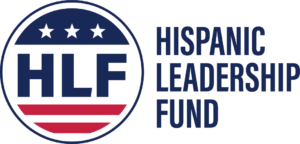The Kids Online Safety Act (KOSA) is being promoted for inclusion on Congress’ year-end to-do list. The bill’s supporters claim they want to address the growing concern about dangers that underage users face online, especially on social media.
But the reality about KOSA is starkly different.
KOSA creates a poorly designed legal scheme that would facilitate politicized enforcement by both the federal and state governments, leading to censorship on all sides. Add to that the data collection requirements and the laughably easy workaround for minors to avoid identifying as such, and it becomes quite clear just how bad this legislation is. HLF previously signed on to a coalition letter of nonpartisan organizations expressing objections to he bill.
Under KOSA, online platforms would have a legal “duty of care” to “mitigate or prevent” any feature that “a reasonable and prudent person would agree” could be a “contributing factor” to a “reasonably foreseeable” harm. That includes functionality influencing “patterns of use” on the platform that affect “socializing.”
Clear as mud.
KOSA would empower both the Federal Trade Commission and fifty State Attorneys General to enforce these rules. FTC bureaucrats would create “guidelines” that have the effect of a law and allow the agency to sue at will. States would then also be able to file their own lawsuits if they claim “reason to believe” that platforms are not conforming to these convoluted standards.
Those legal standards can easily be painted in a way that allows government entities and politicians to go after speech they just don’t like. Certain “design features” can be categorized as responsible for users getting certain types of information.
It is not hard to see why KOSA has raised free speech concerns. In response, the bill’s author’s added language to state that the bill should not be interpreted to clash with the First Amendment.
But looking closely at the revisions, as one legal expert for a tech policy organization has done, shows how poorly drafted the changes are.
Thankfully, House Speaker Mike Johnson expressed concerns this week about KOSA’s first amendment implications.
And under KOSA’s flimsy legal framework, how would we know that kids are being affected to begin with? We wouldn’t, because under KOSA, online platforms are not required to do anything to “implement an age gating or age verification functionality.”
Instead, online platforms would have to take other steps to prove that they know who is and isn’t a minor. That necessitates an enormous amount personally identifiable information from all users, leading to another wide array of problems, including privacy protections.
Instead of bureaucrats and politicians, it is parents who should be empowered in the context of underage online users. As an alternative to KOSA, some have proposed age verification requirements through app store use, for example. Rep. John James of Michigan has introduced a bill with this approach as well.
Protecting underage users from harmful content is a noble goal that elected officials should take seriously. But those efforts should not facilitate a host of Constitutional, political, and practical problems that also have little chance of working.

